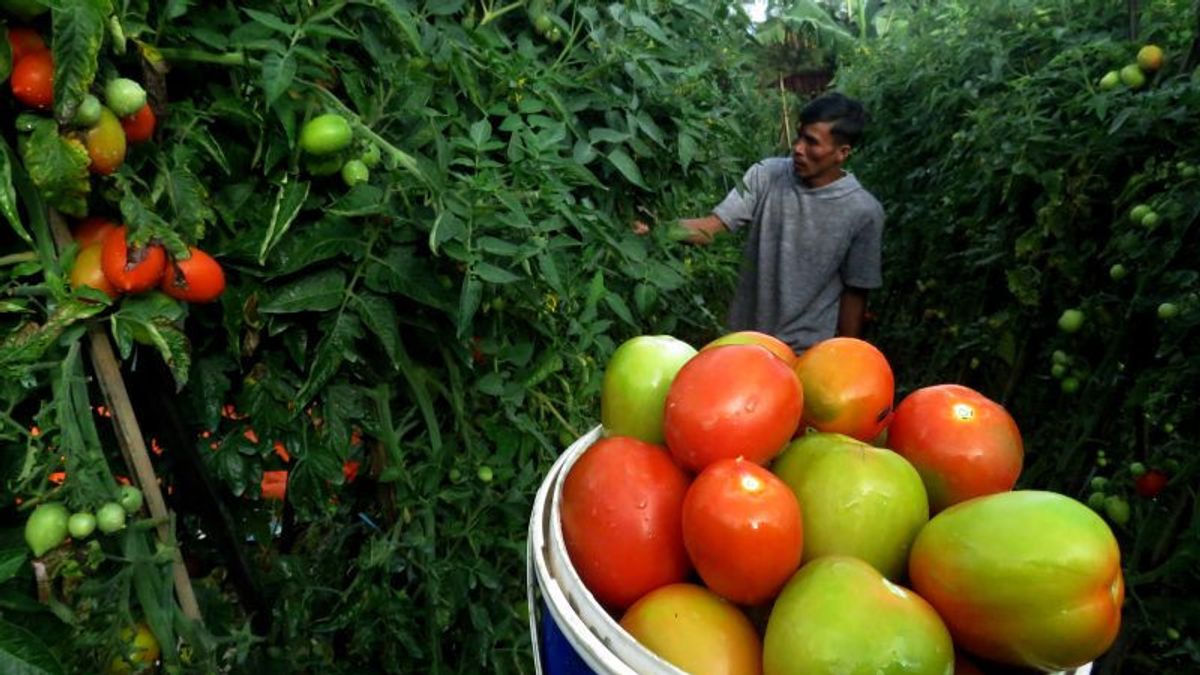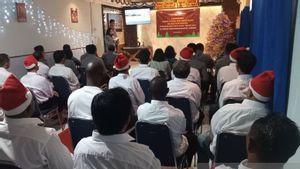JAKARTA - vegetarian diets can reduce the risk of cardiovascular disease because they do not consume animal protein that contains fat. In addition to reducing the risk of cardiovascular disease or heart disease, vegetarians can be one of the daily diets with the benefits of lowering the body's mass index and helping reduce blood sugar levels in the body.
"With this vegetarian, because he does not consume the animal protein, the fats automatically, right, go down, the consumption of vegetables, which is expected to meet the fiber needs," said clinical nutritionist Astrine Permata Leoni, S.Gz, M.Gz, quoted from ANTARA, Tuesday, October 3.
Clinical nutrition specialist from the National RSUP Nutrition Service Installation Dr. Cipto Mangunkusumo added that there are several factors for people to undergo vegetarian diets, including self-encouraging and adopting beliefs that require not consuming protein from animals.
In general, Astrine mentions that there are several types of vegetarians, such as lacto vegetarians, namely people who do not eat foods that contain meat, fish, poultry and eggs but still eat dairy products such as cheese, yogurt, butter and milk.
Furthermore, there is an ovo vegetarian, namely people who do not eat meat, fish, poultry and dairy products, but can still eat eggs. In addition, there are lacto ovo vegetarians that do not consume all types of meat, but, consume eggs and milk.
Meanwhile, people who become pure vegans do not consume meat, fish, poultry, eggs or milk as well as other dairy products.
"There are semi vegetarians and flexitarians that still occasionally eat poultry meat and dairy products but in small amounts," Astrine added.
Astrine said that on a vegetarian diet, the nutritional adequacy rate of animal protein can be replaced from the vegetable protein content. However, there are certain nutritional substances that cannot be replaced by plant-based proteins such as iron, the highest in animal proteins such as meat.
Although iron can be obtained from plant-based protein such as spinach, broccoli vegetables, however, the value of iron available in it is lower than animal protein, which can cause iron deficiency.
"The impact could be a lack of iron or iron deficiency, then in the long term there could be a lack of blood or anemia," said the doctor who graduated from Diponegoro University.
In addition, people who run a pure vegetarian diet may experience a lack of calcium and vitamin D for not consuming dairy products, especially for people living in areas with fewer suns.
Astrine advises people who want to try a vegetarian diet, they can consult with health workers first to find out if there are comorbidities that can affect if they go on that diet.
If you want to apply a vegetarian diet, a person can start to become a lacto ovo vegetarian, which is still able to consume animal protein such as eggs and milk as an alternative to meeting protein or iron needs.
اقرأ أيضا:
During a vegetarian diet, Astrine also advised to continue to carry out physical activities, complete consumption of mineral water and avoid smoking habits.
For the elderly, it is hoped that they will not undergo a vegetarian diet if there is no obligation and continue to meet nutrition with balanced nutrition. Elderly are not recommended to become vegetarians because they are at risk of experiencing reduced muscle life and require more animal protein intake.
"If the belief does not require vegetarians, they can consume or use a balanced diet, namely adequate staple foods, namely animal protein, vegetable protein, vegetables, fruit and also water and various foods," said Astrine.
He also asked the elderly who wanted to try vegetarians to consult a doctor to see if they had comorbidities.
The English, Chinese, Japanese, Arabic, and French versions are automatically generated by the AI. So there may still be inaccuracies in translating, please always see Indonesian as our main language. (system supported by DigitalSiber.id)

















